Chief economist says common framework has failed to provide any new money to world’s poorest countries since it was set up in 2020
Get Started for FREE
Sign up with Facebook Sign up with X
I don't have a Facebook or a X account

 Your new post is loading... Your new post is loading...
 Your new post is loading... Your new post is loading...
Beijing must be more ready to support countries facing distress, says deputy chief economist
Graham Watson's insight:
Interesting, and important story for development economists, with the Deputy Chief Economist of the World Bank, arguing that the key to effective developing economy debt relief is going to be China's position as a creditor.
At present, 11 countries are rated as "in distress" and a further 28 are at risk of becoming so, and for all of them China's has a role to play in helping structure debt relief and improving developmental prospects.
High interest rates siphoning money away from spending on health, education and tackling climate crisis
Graham Watson's insight:
The World Bank has warned that higher interest rates are going to imperil the developmental prospects of many low income countries, by increasing debt repayments and, ultimately, increasing debt levels. All told, the global debt of all developing countries reached $443.5bn in 2022. As a consequence, it estimates that 60% of low income countries are at risk of debt distress.
The initiative is one of the biggest development programmes in history. Ten years on, the government is bailing out hundreds of billions of dollars worth of loans to protect its development banks from default. So should the BRI be regarded as a success and what comes next? The FT's James Kynge talks to the Overseas Development Institute's Yunnan Chen.
Graham Watson's insight:
This FT clip celebrates the 10th anniversary of the Belt and Road Initiative being launched by China, and whether or not its been successful or not.
Certainly, it's been a remarkable policy initiative, looking at fostering economic development in developing economies as well as resolving some of China's own economic contradictions - notably in dealing with excess capacity in certain sectors, and in pushing exporters into searching for the most profitable opportunities.
This interview details how some of the $1 trillion that China has spent, notably on hard infrastructure such as railways and port facilities.
Infrastructure is the foundation of development, yet vast infrastructure gaps persist, leaving nearly half of the world's population without essential services. Discover why Public-Private Partnerships (PPPs) are vital for resilient development
Graham Watson's insight:
This International Finance Corporation posits that "Infrastructure is the foundation of development" - arguing that poverty reduction and sustainable development can only be achieved if there's a resilient infrastructure. Of course, investing in infrastructure can be overlooked because of the competing demands on government budgets.
This clip investigates how Public-Private Partnerships (PPPs) can foster resilient development and how they are transforming lives and unlocking economic growth in developing countries and emerging markets. In short, this clip shows you what the IFC does and the scale of support it offers across the globe.
In geopolitical terms the G7 almost always garners the lion's share of political and media attention in the West and beyond, but when the BRICS summit began yesterday in Johannesburg, not only were Brazil, Russia, India, China and South Africa talking about expansion, there is also the ambition to become a counter to Western domination as they see it.
Graham Watson's insight:
A little Newsnight piece looking at the future for the BRICS group - and whether or not it is going to become a challenger to the G7.
When crises hit, governments need timely insights to take targeted action. The use of mobile phone data to inform such policy response was accelerated by COVID-19. Repurposing mobile phone data into development policy, however, is challenging. The World Development Report 2021 shows that less than 20 percent of low- and middle-income countries can use sophisticated data in policymaking. The World Bank-hosted Global Data Facility, an innovative global funding instrument, supports the use of mobile phone data for policymaking in 30 countries by 2030, enabling more dynamic and targeted solutions to our most pressing global development challenges.
Graham Watson's insight:
This is a brilliant clip looking at the importance of mobile phone data, first and foremost as a way of mitigating the effects of natural disasters, and subsequently how it might become an important part of the data used in policymaking, although their are current significant limits to how well developing economies can do this, despite there being significant returns to investment in the area.
In lead up to Paris meeting on Thursday, open letter states that government loans and grants not enough to spur development
Graham Watson's insight:
French President, Emmanuel Macron, has called upon private finance to flow to developing economies, arguing that government-funded initiatives by themselves cannot spur development to a sufficient degree, not can they tackle the adverse effects of climate change.
From
www
The US central bank announces its tenth rate rise, while signalling it may be the last increase for now.
Graham Watson's insight:
US interest rates have, as forecast, gone up to 5-5.25%. It is the 10th rise in base rates in the last 14 months, although the Federal Reserve has also implied that this might be last interest rate rise for a while.
Certainly, inflation has slowed to 5% in March, although still 3% above the inflation target of 2%, and perhaps the biggest implication of the move is for the borrowing costs of developing economies.
Outgoing boss David Malpass says more money needed to combat overlapping crises of war, pandemics and climate emergency
Graham Watson's insight:
The outgoing head of the World Bank, David Malpass, has marked his departure by calling for a substantial increase in funding to help developing economies deal with the conjunction of war, the coronavirus pandemic and climate change. It's very much a state of the nation address with an acceptance that recent events are going to place significant stress on the most vulnerable, with their debt servicing requirement likely to have significantly increased and the prospect of further debt crises emerging.
Can the Federal Reserve continue to raise interest rates in the middle of a banking panic?
Graham Watson's insight:
Whither US interest rates, with this BBC article wondering where US interest rates are heading in the midst of fears about a banking crisis. This is an important decision with ramifications that go far beyond US borders.
US rates are massively important for developing economies, and their debt interest repayments, as well as global currencies more generally, although, of course, the Chairman of the Federal Reserve is only responsible for the US economy.
A year of conflict has brought soaring prices and faltering trade, but also a step change in the switch to renewables
Graham Watson's insight:
An overview of the impact of the Ukraine war on various aspects of the global economy: inflation, green energy, developing economies, trade and the wealth of Russian oligarchs.
However, just a thought - will we, like we've done with the coronavirus, choose to ignore the lessons that we might have learnt from the experience.
Many believe there is little future in trying to tackle problems of the 2020s with institutions created in the 1940s
Graham Watson's insight:
Larry Elliott looks at the future of the World Bank in the aftermath and asks the pertinent question about whether an institution that emerged in the aftermath of World War Two is still fit for purpose in 2023.
In particular, the power of the United States in effectively being able to select the Bank's president, is a bone of contention. He argues that developing economies need their own advocate to push their agenda, rather than having to rely upon the 'generosity' of developed economies. |
Brazilian president Lula’s proposals have the backing of the World Bank. Now we need action
Graham Watson's insight:
Larry Elliott argues that the G20 are showing signs of committing to tackling extreme poverty in the years ahead, arguing that poverty reduction is going to require both public and private sector investment, with the former crowding in the latter.
However, without a concerted effort to improve infrastructure and improve public finances in developing economies and go some way to getting closer to achieving the Sustainable Development Goals (SDGs) by 2030. At present, we're going to fall well short in relation to both extreme poverty and zero hunger.
The historic Bretton Woods summit shaped a golden era of growth. This year’s G20 could be our equivalent, says academic and economist Michael Jacobs
Graham Watson's insight:
Michael Jacobs calls for a reshaping of the global economic order to take greater account of developing economies. He identifies five challenges that they face - no spoilers this time - and how the G20 might be the vehicle that allows for their interests to be given greater emphasis in the years ahead.
Nations contributing least to greenhouse gas emissions are least equipped to deal with climate-related destruction
Graham Watson's insight:
The Guardian makes the case for a loss and damage fund to be established by developed economies at COP28; it's difficult to argue against this, not least given the constrained ability of the developing economies to fund policies to tackle climate change.
Despite more than 4,500 climate policies over the last three decades, the world is still on track for unprecedented #ClimateChange – and many remain unsure how to implement the changes we need to make a difference. Yet some government policies have successfully tackled the effects of a changing climate and are still making tangible progress. A new World Bank report, "Reality Check: Lessons from 25 Case Studies Advancing a Low-Carbon Future", showcases examples across sectors and five continents, from countries as disparate as Egypt, China and Peru.
Graham Watson's insight:
This World Bank clip looks at how after 30 years and 4,500 climate change policies there's an emerging consensus as to what work. The latest "Reality Check Report" looks at 25 case studies from across the globe, looking at how individual nations have made great strides in moving towards net zero carbon, using incentives and identifying possible source of investment and the appropriate interventions and legislation, and mobilising their populations in pursuit of climate change targets.
As summit delegates gather in Nairobi next week, those from the global north should remember one thing: inaction will cost them more in the end than an immediate concerted effort
Graham Watson's insight:
Former Mozambican politician, and spouse of the late Nelson Mandela, writes in the Guardian about the forthcoming African climate summit arguing that the single best driver of success would be greater willingness for developed economies to contribute to climate change solutions.
Despite having pledged to give $100bn a year to developing economies for this, developed economies have never met that pledge, and a failure to meet this pledge could have a significantly detrimental effect on GDP - 12% of GDP by 2050 and as much as 80% by 2100.
The Philippines is known for its bustling cities, immense natural beauty, and a long, well-established tradition of workers going overseas for jobs, experiences, and new opportunities. But with so many Filipinos pursuing opportunities abroad, does the country run the risk of losing top talent? On the island of Mindanao, the World Bank met fish farmer Angelito Castro whose career shows how outbound migration can be a boon for migrants and countries of origin alike.
Graham Watson's insight:
This brilliant World Bank clip looks at the importance of outward migration for developing economies, such as the Phillippines. In the short-term, Angelito Castro's remittances contributed to development. In the longer-term, his skills, experiences and the connections he made abroad have helped him grow his fish farm, and dramatically improve their living standards.
It's a great clip!
Move at Paris summit on global finance will only apply to repayments on new loans
Graham Watson's insight:
So, it looks like the World Bank is offering limited debt relief, although critics argue that because debt pauses will only be offered on new loans, the measure does not go far enough towards tackling developing economy debt.
However, again, the issue of moral hazard raises its head: does the offering of debt relief incentivize LEDCs to take on higher levels of debt in the first place.
Exclusive: Kristalina Georgieva calls for ‘debt for climate swaps’ and more finance for poor countries
Graham Watson's insight:
A complicated issue to unpick but the head of the IMF, Kristina Georgieva has called for so-called 'debt for climate swaps' to be offered to developing economies to allow them to overcome the challenges posed by climate change. It all seems so worthwhile. But is it?
Undoubtedly climate change is challenging but isn't there an issue of asymmetric information here - and a risk of moral hazard as a result. Won't developing economies have less incentive to manage their debt and might it encourage risky behaviours in the knowledge that they might get bailed out.
An unusual, if valid, real world example of moral hazard operating in a market.
Lower income countries cannot afford the upfront costs of transitioning to clean energies. But the World Bank has mapped out a solution. Watch how we can build a ‘virtuous cycle’ to propel a pipeline of renewable energy projects that attract private investment.
Graham Watson's insight:
This World Bank highlights the barriers to developing economies adopting clean energy sources. The biggest obstacle seems to be the high fixed costs of renewable energy networks, and accessing the financing required to invest in this infrastructure.
This is where the World Bank comes in: in encouraging developing economies to scale up to phase down - and helping them access the private sector investment funds to enable them to do this.
Rise in emergency financing for other countries since 2016 correlates with drop in infrastructure lending
Graham Watson's insight:
This article looks at the role of China in financing infrastructure projects in the developing world, as part of its Belt and Road programme. What is interesting is the fact that this isn't about new projects but the fact that China has had to bailout recipient nations to the tune of $240bn, and the opportunity cost of this seems to have been a commensurate reduction in lending for new projects.
What's also worth noting is the fact that China's bailouts come at a cost: "the average interest rate attached to a Chinese rescue loan was 5%, compared with 2% for a typical rescue loan from the IMF" and this will mean higher debt repayments going forward.
Editorial: Cancelling loans put the Wunder into Wirtschaftswunder. Treat poor nations the same today
Graham Watson's insight:
The Guardian draws parallels between the treatment of Germany at the end of the Second World War and the attitude to developing economies today, arguing that the former massively benefitted from debt relief on a scale that's never going to be granted to the latter.
Furthermore, they argue that some of the motivation for this stems from the developed world being relatively happy with the status quo where the developing economies continue to produce large quantities of raw materials and agricultural produce for the developed world. We used to call this clientelism.
However, are the parallels between the London Debt Agreement and modern debt relief apt, and how could debt relief best be targeted to foster development? And what are the potential downsides to this?
Former UN secretary general calls for rich countries to honour promises made to the developing world after years of failure
Graham Watson's insight:
Depressing comments from the former UN General Secretary, Ban-Ki moon, who is of the view that the developed world has continued to fail to match up to its climate change pledges to the developing world.
He argues that in not looking after smallholder farmers, we are potentially worsening the implications of climate change for some the world's most vulnerable people. |



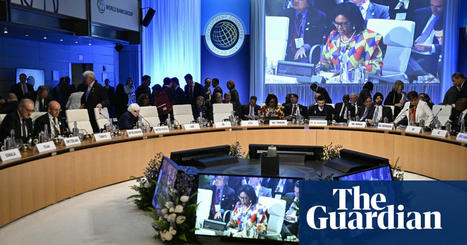

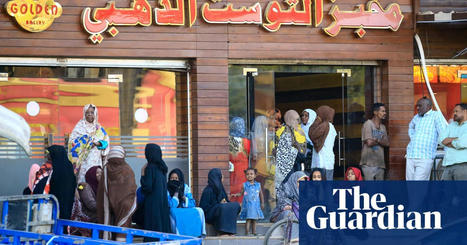







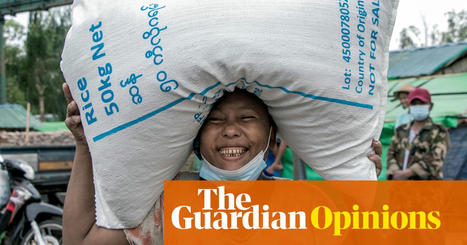


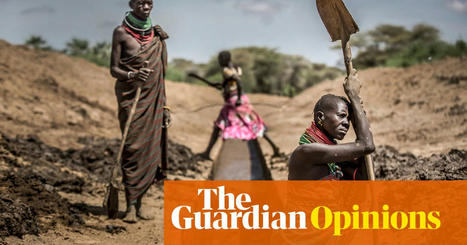




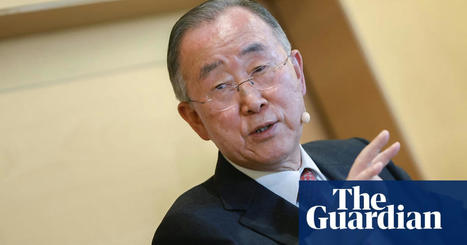





✅ Link Daftar UNOVEGAS �https://bit.ly/unovegas
✅ Link Log in UNOVEGAS �https://tinyurl.com/unovegas99
PROMO SPESIAL CASBACK DAN ROLINGAN
BONUS BEBAS BUY SPIN,
BERLAKU UNTUK SEMUA PROVIDER GAME.
TIDAK ADA BATASAN KEMENANGAN / WD.
✅ Minimum Deposit 5RB
✅ Tidak ada batasan kemenangan
✅ Pilihan metode deposit : BANK / E-WALLET
✅ Auto Payment untuk memudahkan deposit.
SALAM JP & MAXWIN